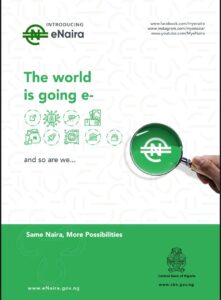By Chris Agabi
The Central Bank of Nigeria (CBN) has sustained its war on inflation by further raising the benchmark interest rate by 25 basis points to 27.50 pe cent from 27.25 per cent.
Rising from it’s November Monetary Policy Committee Meeting (MPC), held on Tuesday, 26th November, 2024, the CBN retained Cash Reserve Ratio of Deposit Money Banks at 50.00 percent and Merchant Banks at 16 percent.
It also retained the Liquidity Ratio at 30.00 percent and held the asymmetric corrido around the MPR at +500/-100 basis points.
Briefing journalists at the end of the meeting, Dr. Olayemi Cardoso,
Governor, Central Bank of Nigeria said the meeting took cognisance of renewed inflationary pressures, as the headline, food and core measures rose year-on-year in October 2024.
He said the Committee was particularly concerned that all three measures also inched up on a month-on-month basis, suggesting the persistence of price pressures,with attendant adverse impacts on income and welfare of citizens.
Data from the National Bureau of Statistics showed that headline inflation (year-on-year) rose to 33.88 per cent in October 2024, from 32.70 per cent in September 2024.On a month-on-month basis, it also rose to 2.64 per cent in October 2024, from 2.52 per cent in the previous month, with both the food and core components contributing to the continued rise in headline inflation. Food inflation rose further to 39.16 per cent in October 2024, from 37.77 per cent in September,while core inflation also rose to 28.37 per cent in October 2024,from 27.43 per cent in September.
Based on the above, the CBN Governor said “members focused on the optimal policy choice to address the uptrend in price development, stabilize the exchange rate and anchor inflation expectations appropriately.”
Dr. Cardoso further indicated that members commended the efforts of the Federal Government for the improved security, especially in the North-East of the country, hoping it would improve food production.
The Committee also noted the role of rising energy prices on the general price level due to its impact on factors of production. The recent increase in the price of Premium Motor Spirit (PMS) has also impacted the cost of production and distribution of food items and manufactured goods.
The Committee is optimistic that the full deregulation of the downstream sub-sector of the petroleum industry would eliminate scarcity and stabilise price levels in the short to medium term.
Members thus, reiterated the need to strongly forge ahead with the deepening collaboration between the monetary and fiscal authorities to ensure the achievement of our synchronized objectives of price stability and sustainable growth.
The Committee noted the improvement in the external sector, reflected by the increase in the current account surplus, enhanced remittance and capital inflows which have impacted the external reserves positively. This, therefore,suggests that key policy measures by both the monetary and fiscal authorities are yielding the desired outcomes.
CBN Sustains Rein-in on Inflation, Raises Benchmark Interest Rate To 27.25%
Reading Time: 2 mins read
0
Leave a Reply Cancel reply
FOLLOW US
BROWSE BY CATEGORIES
BROWSE BY TOPICS
2023 Benue Budget
Abuja-Kaduna Rail
Access Corporation
Access pension
airports concession
Aviation
Ayu
Benue Budget
Benue Community
Buhari
Business
CBN
Central Bank
Dana Air
Economy
FGPL
Herdsmen
Herdsmen attacks
insecurity
insurance
Maritime
Min of Transport
MSMEs
NAICOM
NCAA
Nigeria
Nigeria -Cameroon Border Post
Nigeria Air
NRac
Onne Port
ooh
Orrom
Ortom
PDP
PenCom
pension
Railway
Sambo Jaji
Transcorp
Transcorp Group
Transcorp Hotels Plc
UBA
Ukohol
Wike
Wildon Ideva
Economy Footprint
The EconomyFootprint is published by Ideas Tent Communications Ltd®. All Rights Reserved.














